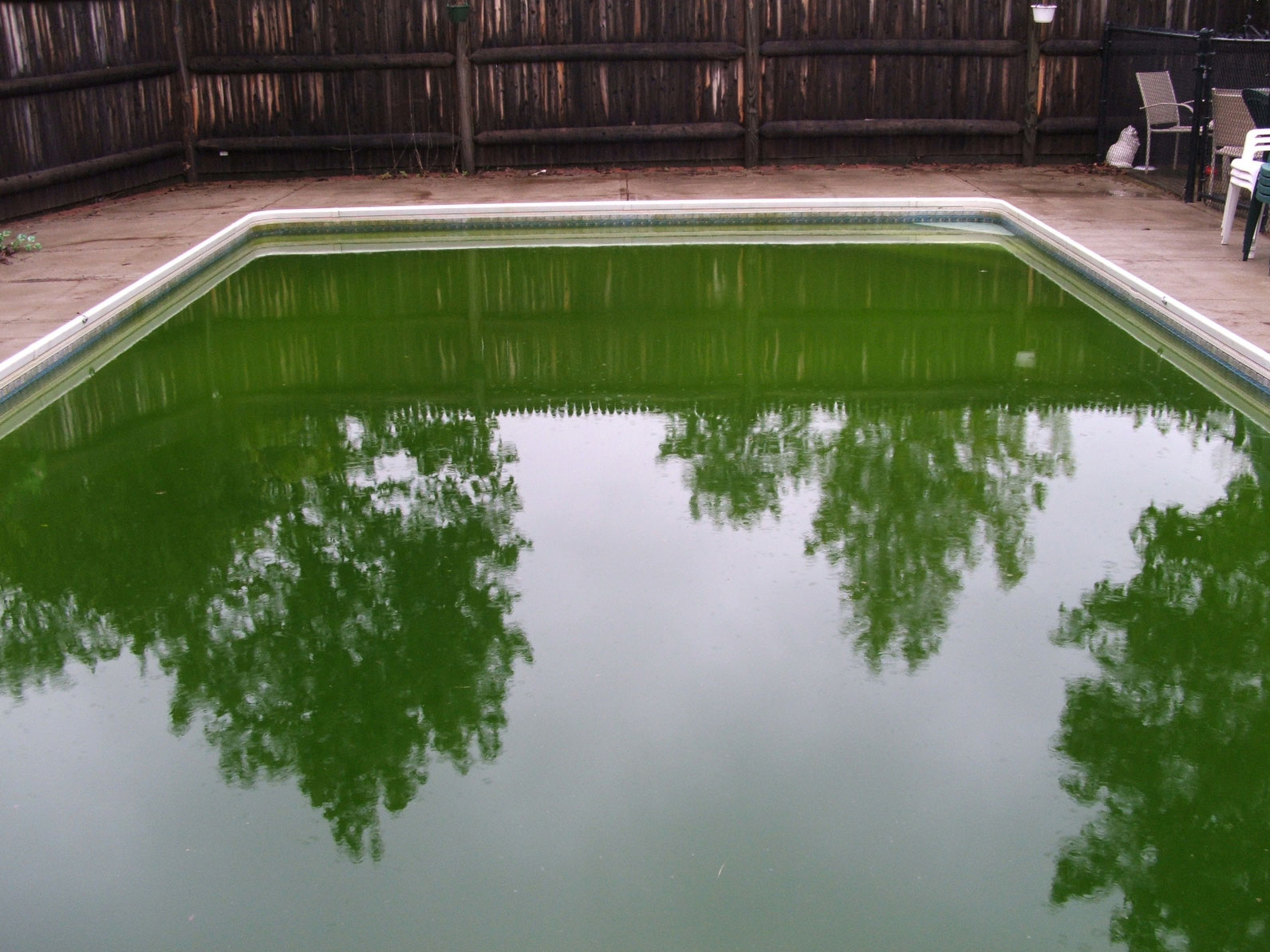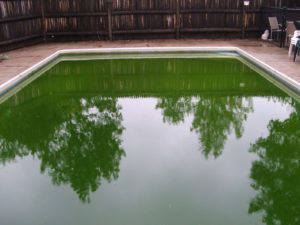Be wary of phosphates! They might just cause an algae bloom in your pool.
Despite the new vegetation that spring brings, an algae-ridden pool is not ideal for spring swimming conditions. These organisms grow in your pool, making it dirty and unsafe for swimming. But what causes these algae blooms to grow? Where do they come from and how can you stop them? Ultimately, it boils down to phosphates in your pool water. Here’s what you need to know about phosphates and their effect on your pool.
What are phosphates?
Time to whip out the periodic table and revert back to your chemistry classes. Phosphates are a compound from the element phosphorous. Incidentally, when broken down to orthophosphates, they happen to be a prime food source for certain types of plants, like algae.
How do phosphates get into the pool water?
Phosphate contamination is inevitable. There are lots of ways in which phosphates can enter your water. From debris to sprinkler run-off, to certain pool cleaning chemicals, phosphates are constantly entering your pool. There’s no way to be phosphate free, but levels can be managed.
What steps can one take to reduce concentration levels?
The best way to keep the phosphates in your pool under control is to keep up with routine maintenance. Be sure to remove leaves and other debris from your pool, clean pool vacuums and filters frequently, be wary of pool cleaners that have phosphates in them and be mindful of your garden fertilizers and surface run-off. The best way, however, to keep your pool algae (and phosphate) free is to hire a professional pool cleaning service. Their knowledge and expertise make them best able to keep your pool spick and span.
Make sure you choose the best pool cleaning service. For all your pool services, contact the professionals at Clean & Clear Pools! Located in Danville, California, we serve the Livermore, Pleasanton, Dublin, San Ramon, Danville, and Alamo communities.
Comments are closed.












